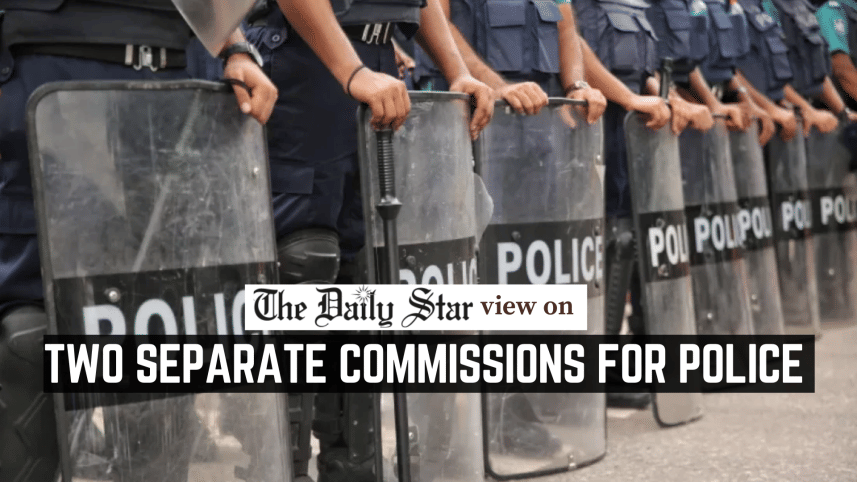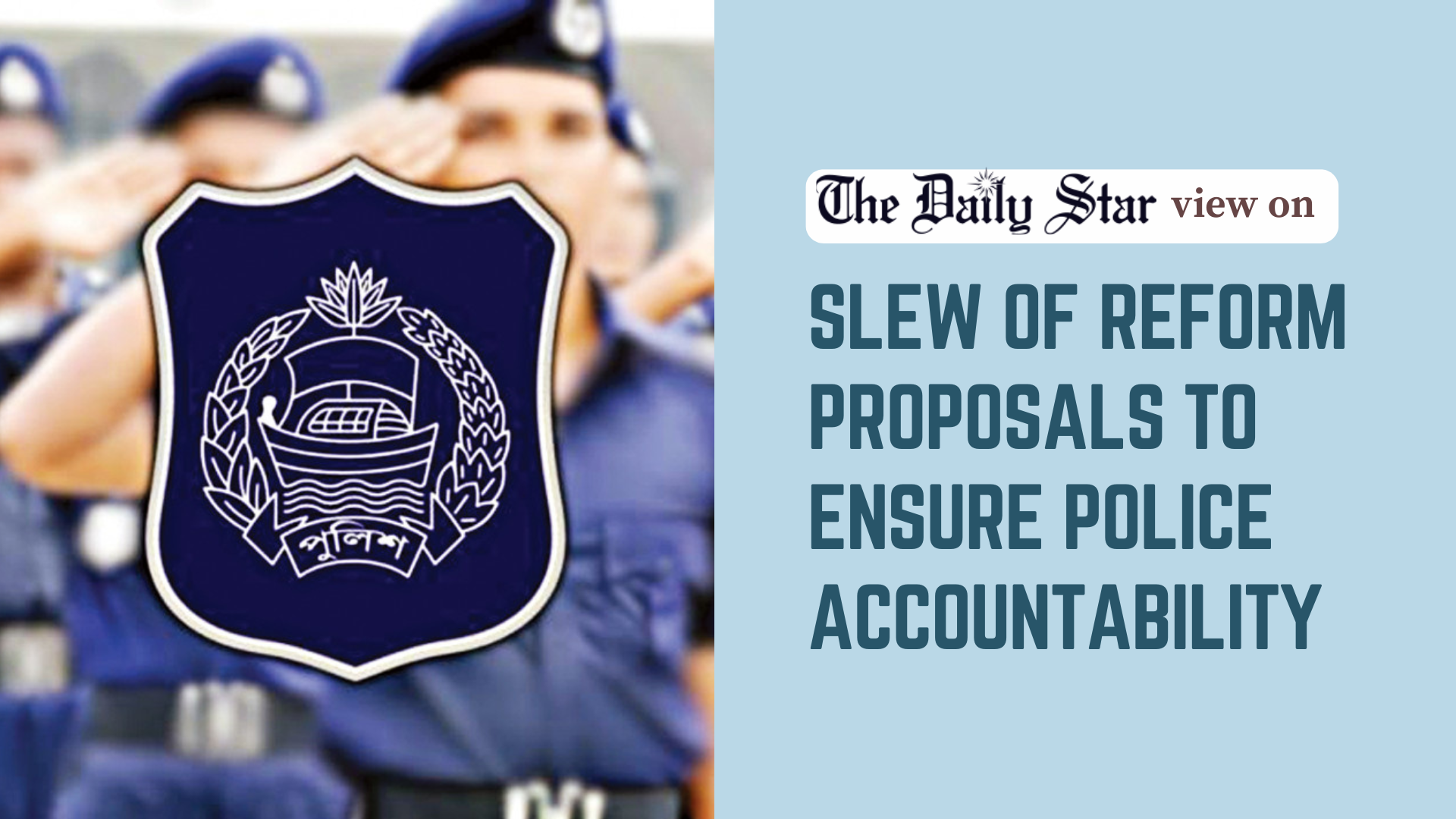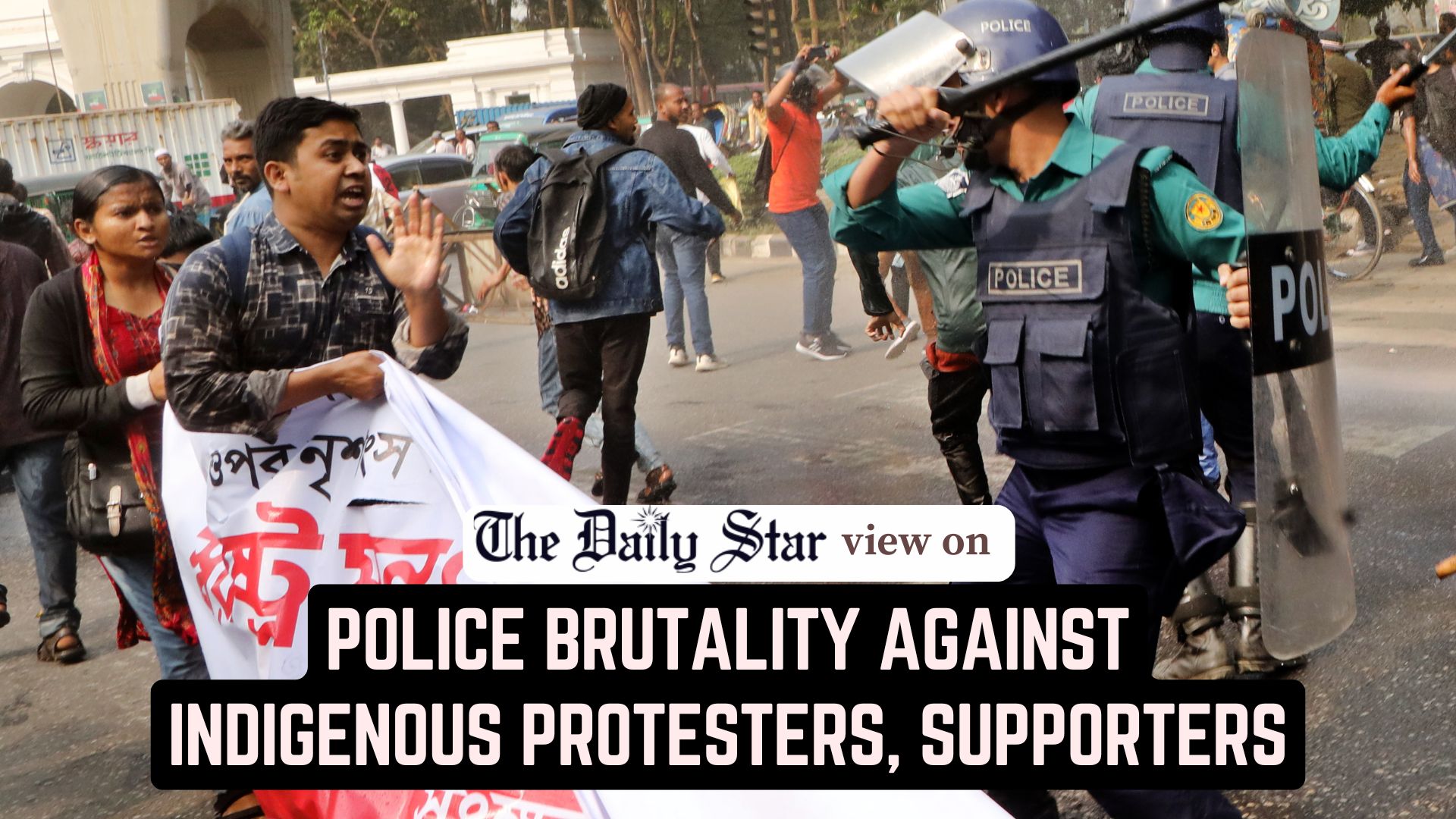Commissions for police a good move

It is encouraging to learn about the interim government's decision to establish two separate commissions for the police—the Independent Investigation Services and the Internal Complaints Commission—to usher in long-awaited accountability within the force. This decision signals a renewed commitment to reform the force long plagued by impunity, politicisation, and public mistrust. However, while the intent behind forming the commissions is commendable, the structure and execution of these commissions must be carefully scrutinised to ensure they can bring real change.
The Police Reform Commission first proposed the formation of an independent police commission in January, as part of a broader set of recommendations to overhaul the force. These included aligning police's use of force with the UN peacekeeping standards, curbing custodial torture, extortion, arbitrary arrests, and enforced disappearances, and amending outdated police laws to ensure accountability and human rights compliance. Now that two separate commissions are supposed to be formed instead of one, some believe that this may create obstacles in the reform process. The differences of opinions among various stakeholders about the commissions' formation, therefore, must be resolved through proper discussion.
Reportedly, the Independent Investigation Services, which will be chaired by the law adviser or minister according to the government's decision, will be tasked with probing misconduct within the police, without external interference. This is a critical development, especially given the force's history of shielding its own members from scrutiny. To be effective, the commission must be legally empowered to conduct impartial investigations, free from political or bureaucratic pressure. The Internal Complaints Commission, meanwhile, will be chaired by the home adviser or minister, with the inspector general of police (IGP) as member-secretary. Its mandate includes building a people-friendly and transparent police force by resolving internal grievances, ensuring accountability in recruitment and promotions, and overseeing training, welfare, leadership selection, structural reforms, and policy development. While its scope is broad, its credibility also hinges on its independence.
Over the past decades, public confidence in our police has steadily eroded due to widespread corruption and its political misuse. Particularly during the Awami League regime, the force saw a significant decline in credibility. This loss of trust intensified during the July uprising last year, when police brutality reached unprecedented levels through indiscriminate shootings and the killing of protesters. Therefore, following the regime's collapse, demands for meaningful police reform grew louder.
With the formation of these commissions, we hope to get a more accountable and people-friendly police. However, for the commissions to work independently, robust legal safeguards and genuine political will are needed. Without them, they risk becoming another missed opportunity. But if formed with sincerity and determination, they have the potential to transform the police from a force of coercion into a public service rooted in protection and trust.



 For all latest news, follow The Daily Star's Google News channel.
For all latest news, follow The Daily Star's Google News channel. 

Comments